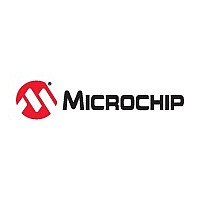PIC16F1947-I/PT Microchip Technology Inc., PIC16F1947-I/PT Datasheet - Page 282

PIC16F1947-I/PT
Manufacturer Part Number
PIC16F1947-I/PT
Description
64 TQFP 10x10x1mm TRAY28KB Flash, 1KB RAM, 256B EEPROM, LCD, 1.8-5.5V
Manufacturer
Microchip Technology Inc.
Datasheet
1.PIC16LF1946-IPT.pdf
(448 pages)
Specifications of PIC16F1947-I/PT
A/d Inputs
17-Channel, 10-Bit
Comparators
3
Cpu Speed
8 MIPS
Eeprom Memory
256 Bytes
Input Output
54
Interface
CAN/I2C/SPI/UART/USART
Memory Type
Flash
Number Of Bits
8
Package Type
64-pin TQFP
Programmable Memory
28K Bytes
Ram Size
1K Bytes
Speed
32 MHz
Timers
4-8-bit, 1-16-bit
Voltage, Range
1.8-5.5 V
Lead Free Status / Rohs Status
RoHS Compliant part
Electrostatic Device
Available stocks
Company
Part Number
Manufacturer
Quantity
Price
Company:
Part Number:
PIC16F1947-I/PT
Manufacturer:
XILINX
Quantity:
86
Company:
Part Number:
PIC16F1947-I/PT
Manufacturer:
Microchip Technology
Quantity:
10 000
Part Number:
PIC16F1947-I/PT
Manufacturer:
MICROCHI
Quantity:
20 000
- Current page: 282 of 448
- Download datasheet (4Mb)
PIC16F/LF1946/47
24.6.8
An Acknowledge sequence is enabled by setting the
Acknowledge Sequence Enable bit, ACKEN bit of the
SSPxCON2 register. When this bit is set, the SCLx pin is
pulled low and the contents of the Acknowledge data bit
are presented on the SDAx pin. If the user wishes to
generate an Acknowledge, then the ACKDT bit should
be cleared. If not, the user should set the ACKDT bit
before starting an Acknowledge sequence. The Baud
Rate Generator then counts for one rollover period
(T
When the SCLx pin is sampled high (clock arbitration),
the Baud Rate Generator counts for T
is then pulled low. Following this, the ACKEN bit is auto-
matically cleared, the Baud Rate Generator is turned off
and the MSSPx module then goes into Idle mode
(Figure
24.6.8.1
If the user writes the SSPxBUF when an Acknowledge
sequence is in progress, then WCOL is set and the
contents of the buffer are unchanged (the write doesn’t
occur).
FIGURE 24-30:
DS41414B-page 282
BRG
) and the SCLx pin is deasserted (pulled high).
24-29).
Note: T
ACKNOWLEDGE SEQUENCE
TIMING
WCOL Status Flag
SSPxIF
BRG
SDAx
SCLx
Acknowledge sequence starts here,
= one Baud Rate Generator period.
ACKNOWLEDGE SEQUENCE WAVEFORM
SSPxIF set at
the end of receive
ACKEN = 1, ACKDT = 0
write to SSPxCON2
BRG
. The SCLx pin
8
D0
Preliminary
Cleared in
software
T
BRG
ACK
24.6.9
A Stop bit is asserted on the SDAx pin at the end of a
receive/transmit by setting the Stop Sequence Enable
bit, PEN bit of the SSPxCON2 register. At the end of a
receive/transmit, the SCLx line is held low after the
falling edge of the ninth clock. When the PEN bit is set,
the master will assert the SDAx line low. When the
SDAx line is sampled low, the Baud Rate Generator is
reloaded and counts down to ‘0’. When the Baud Rate
Generator times out, the SCLx pin will be brought high
and one T
later, the SDAx pin will be deasserted. When the SDAx
pin is sampled high while SCLx is high, the P bit of the
SSPxSTAT register is set. A T
cleared and the SSPxIF bit is set
24.6.9.1
If the user writes the SSPxBUF when a Stop sequence
is in progress, then the WCOL bit is set and the
contents of the buffer are unchanged (the write doesn’t
occur).
T
BRG
9
SSPxIF set at the end
of Acknowledge sequence
BRG
STOP CONDITION TIMING
WCOL Status Flag
ACKEN automatically cleared
(Baud Rate Generator rollover count)
2010 Microchip Technology Inc.
Cleared in
software
BRG
(Figure
later, the PEN bit is
24-30).
Related parts for PIC16F1947-I/PT
Image
Part Number
Description
Manufacturer
Datasheet
Request
R

Part Number:
Description:
IC, 8BIT MCU, PIC16F, 32MHZ, SOIC-18
Manufacturer:
Microchip Technology
Datasheet:

Part Number:
Description:
IC, 8BIT MCU, PIC16F, 32MHZ, SSOP-20
Manufacturer:
Microchip Technology
Datasheet:

Part Number:
Description:
IC, 8BIT MCU, PIC16F, 32MHZ, DIP-18
Manufacturer:
Microchip Technology
Datasheet:

Part Number:
Description:
IC, 8BIT MCU, PIC16F, 32MHZ, QFN-28
Manufacturer:
Microchip Technology
Datasheet:

Part Number:
Description:
IC, 8BIT MCU, PIC16F, 32MHZ, QFN-28
Manufacturer:
Microchip Technology
Datasheet:

Part Number:
Description:
IC, 8BIT MCU, PIC16F, 32MHZ, QFN-28
Manufacturer:
Microchip Technology
Datasheet:

Part Number:
Description:
IC, 8BIT MCU, PIC16F, 32MHZ, SSOP-20
Manufacturer:
Microchip Technology
Datasheet:

Part Number:
Description:
IC, 8BIT MCU, PIC16F, 20MHZ, DIP-40
Manufacturer:
Microchip Technology
Datasheet:

Part Number:
Description:
IC, 8BIT MCU, PIC16F, 32MHZ, QFN-28
Manufacturer:
Microchip Technology
Datasheet:

Part Number:
Description:
IC, 8BIT MCU, PIC16F, 20MHZ, MQFP-44
Manufacturer:
Microchip Technology
Datasheet:

Part Number:
Description:
IC, 8BIT MCU, PIC16F, 20MHZ, QFN-20
Manufacturer:
Microchip Technology
Datasheet:

Part Number:
Description:
IC, 8BIT MCU, PIC16F, 32MHZ, QFN-28
Manufacturer:
Microchip Technology
Datasheet:

Part Number:
Description:
MCU 14KB FLASH 768B RAM 64-TQFP
Manufacturer:
Microchip Technology
Datasheet:

Part Number:
Description:
7 KB Flash, 384 Bytes RAM, 32 MHz Int. Osc, 16 I/0, Enhanced Mid Range Core, Low
Manufacturer:
Microchip Technology

Part Number:
Description:
14KB Flash, 512B RAM, 256B EEPROM, LCD, 1.8-5.5V 40 UQFN 5x5x0.5mm TUBE
Manufacturer:
Microchip Technology
Datasheet:











